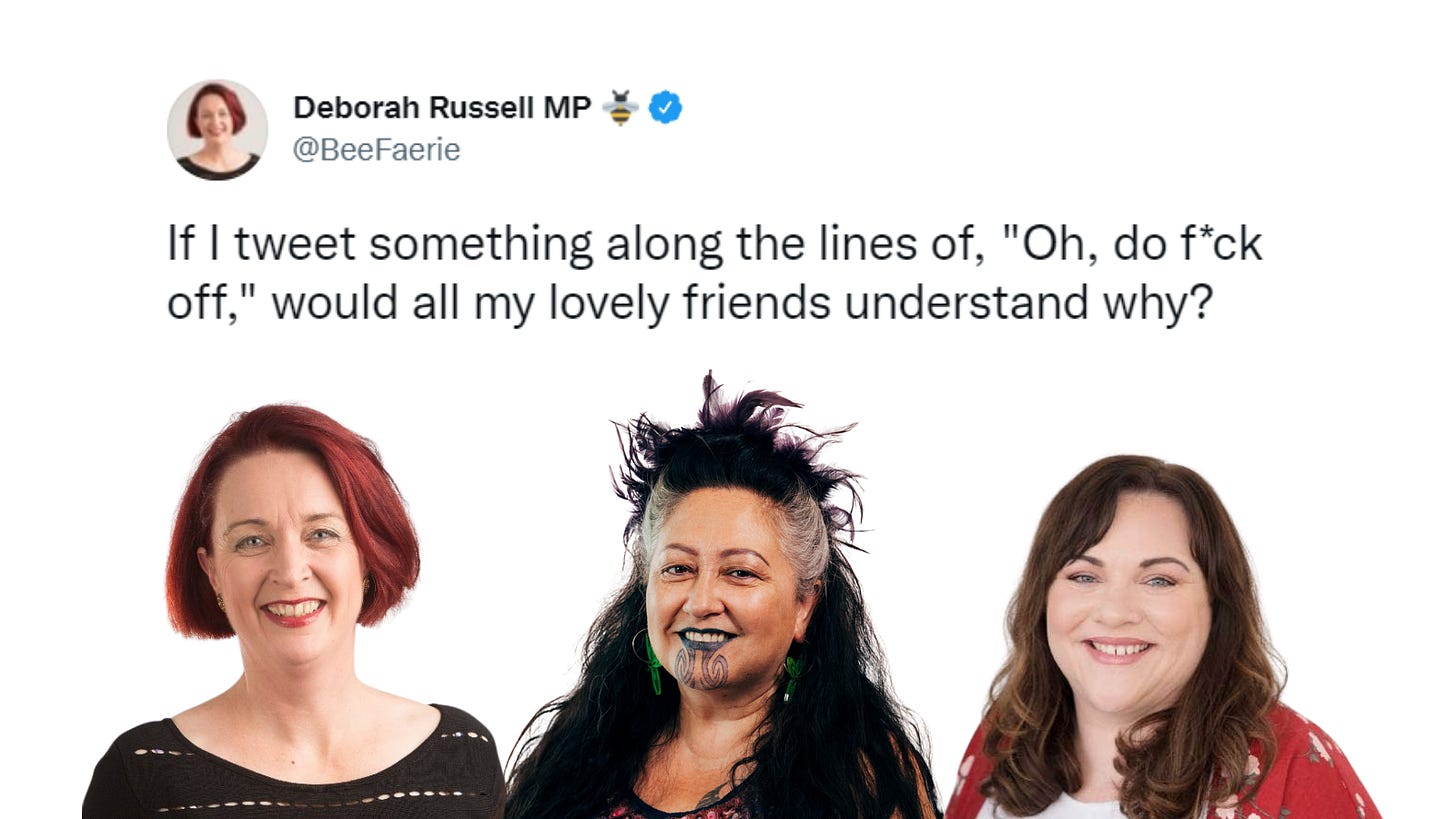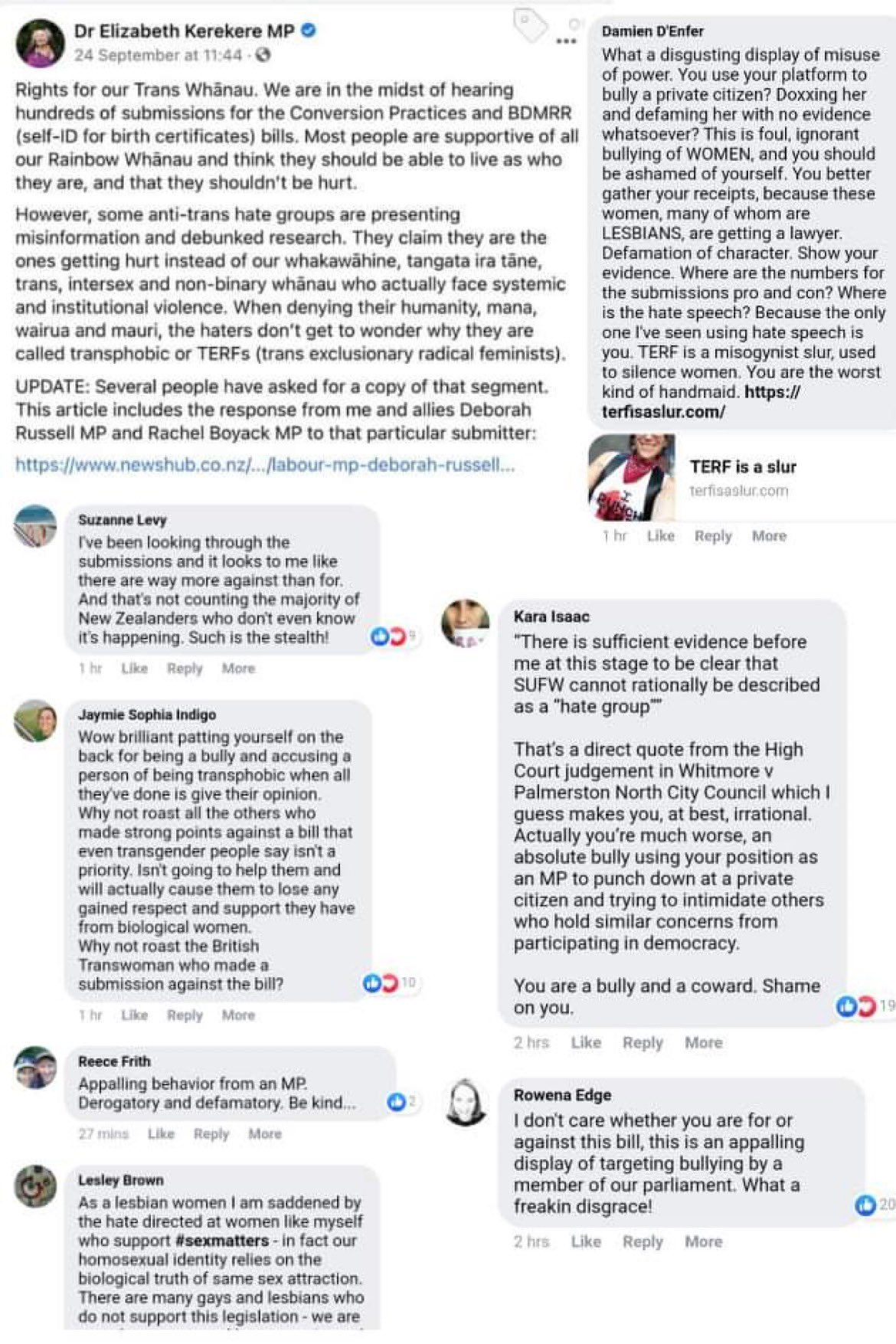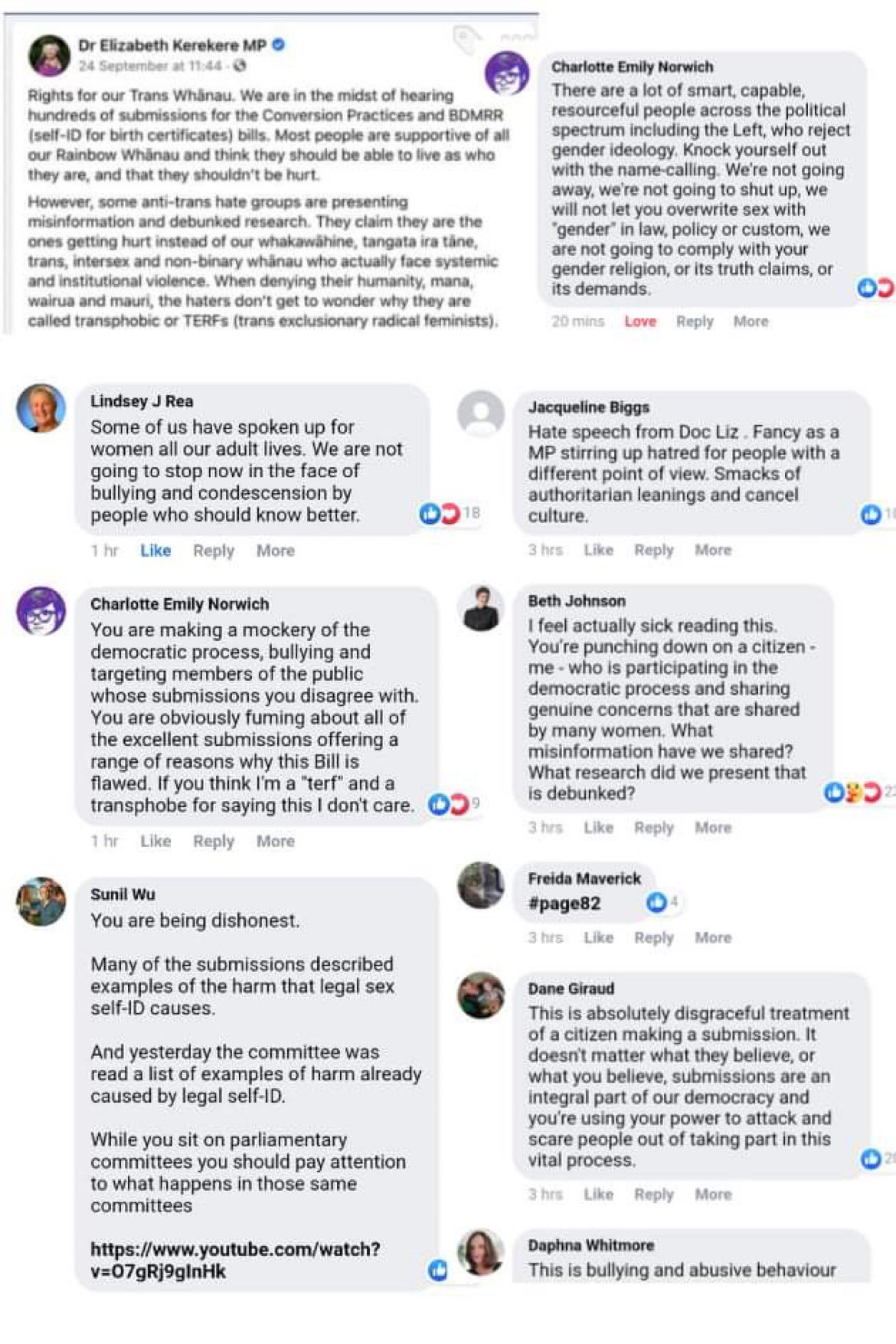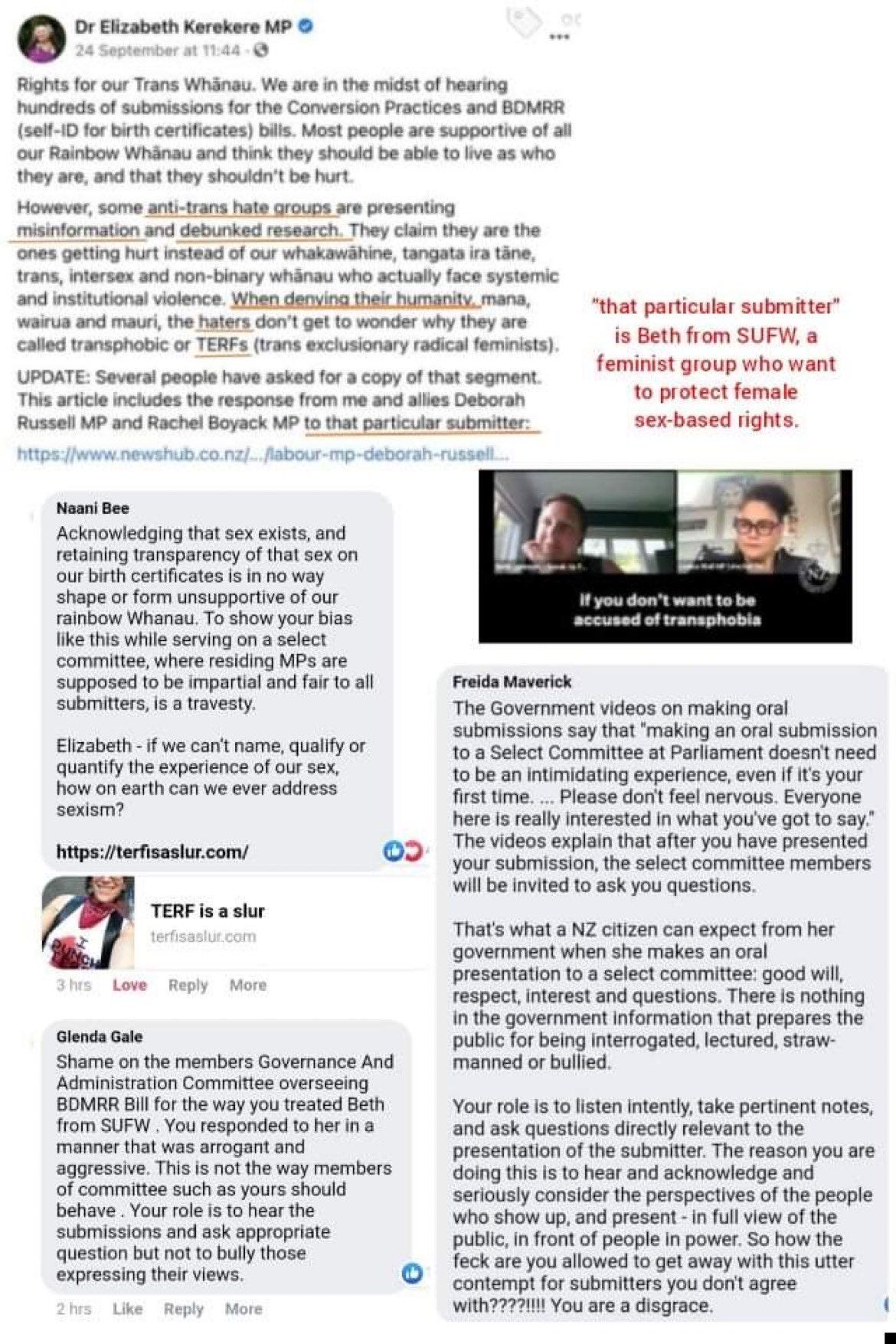New Zealand MPs Belittle Women's Concerns
Members of a select committee in New Zealand are currently hearing submissions from the public regarding a clause added as part of a proposed update to the Births, Deaths, Marriages and Relationships Registration Bill (BDMRR bill) which would enshrine sex self-identification into law.
Beth Johnson, a representative for women’s rights organization Speak Up for Women (SUFW), submitted her oral testimony opposing sex self-identification on September 27.
“We strongly reject the depiction of Speak Up for Women as ‘anti-trans’. We believe that biological sex and gender are different, and that sometimes, in specific circumstances, sex matters. This belief is worthy of respect in a democratic society, as a high court judge in the UK recently ruled in the Forstater case. We have not had this respect to date in New Zealand, but I expect that we will have it now.”
At the heart of this bill is a contradiction. The government states that this bill will not impact existing rights to single-sex services, but at the same time, says this change is necessary to enable transgender people to access services without being outed. That’s the contradiction. If a male person uses an altered birth certificate, to gain entrance, for example, to a girls’ school, without being outed, then they’ve gained entrance by subterfuge. This undermines the rights of girls at the school as well as the right of the school to provide a single-sex service.”
Beth Johnson went on to detail examples of how sex self-identification policies are harming women-only spaces and services in Canada and the US, and offered anecdotal testimonies from women who have contacted her personally, including the story of a mother whose ten year-old daughter leaves the pool in wet clothing to avoid undressing in front of a male who uses the women’s changing facilities at the same time as her.
In her closing remarks, Ms. Johnson asserted: “Because no change in physiology or appearance will now be required, males who self-identify as females may be indistinguishable from the general population of males. This is changing our social understanding of what a transgender person is. How will male access to female facilities possibly be regulated? Currently access is regulated by social contract, where, providers and users of these services know their rights, and will insist on them when necessary. But this social contract will disintegrate under this law.”
“The activists have said ‘no debate’, and ‘our existence is not up for debate’. That’s because these activists know that if debate were to occur, as it is starting to now, that the demand for sex self-identification would be exposed not as a right at all, but as an extraordinary demand to impose on the existing rights of women.”
During her closing remarks, MP Deborah Russell and MP Rachel Boyack could be seen smirking and laughing. MP Russell was the first committee member to reply to Ms. Johnson’s submission, and immediately called into question the legitimacy of Speak Up For Women as an organization, without responding to the many issues detailed in her oral testimony. “You say you have about 200 active members and you claim you have thousands of other supporters. On what basis is that?” Ms. Johnson cited the number of active group members as well as social media followers, to which MP Russell said, derisively, “That’s interesting, as Speak Up For Women, you claim to be representing New Zealand women.”
Incredibly, MP Russell compared the number of members and supporters with another women’s organization “that we’re speaking to next”, which, it was implied, supports sex self-identification. This was clearly abusive and manipulative behavior on her part, statements that were made to belittle Ms. Johnson and the concerns of women in general. MP Russell leveraged her power as a politician and committee member to condescend to a constituent she was being paid to listen to and represent.
The next reply was from MP Elizabeth Kerekere, who said, “Reading your materials is always interesting, because I would say as a general rule, if you don’t want to be accused of transphobia, perhaps don’t say transphobic things.”
MP Kerekere posted this 16-second clip of SUFW’s oral submission to her public Facebook page, saying: “Some anti-trans hate groups are presenting misinformation and debunked research… the haters don’t get to wonder why they are called transphobic or TERFs (trans exclusionary radical feminists).”


MP Kerekere has since deleted more than 80 comments made directly responding to the video clip. Several netizens accused her of abuse of power, calling her behavior “derogatory and defamatory”, “bullying”, and “making a mockery of the democratic process.”
A concerned New Zealand citizen who also spoke out against sex self-identification legislation was Rex Landy, who, despite being allotted five minutes to speak, was cut off at about four minutes. Ms. Landy spoke clearly and directly, saying, “It is a belief system that people have been born in the wrong body. Autogynephiles and men in dresses are not women.”
In her testimony, Ms. Landy referenced 'Ashley Winter' of Auckland, a trans-identified male who kidnapped, tortured, and killed a 17 year-old girl, stripping her naked and burning her with aerosol and a lighter before killing her.
MP Russell turned off her camera one minute into a four-minute submission, claiming back troubles, to which another committee member replied, “That’s okay Deborah, you got away with it.”
After I shared the video on Twitter and tagged her in, MP Russell responded to me, again citing back pains.

A few hours later, she tweeted:

MP Russell and MP Kerekere have displayed a shocking level of disdain for women they are employed to represent and paid to listen to as part of a democratic process regarding changes to law that will have a significant impact on the rights of women and girls in New Zealand. MP Boyack also made her contempt known with her silent smirks during hearings.
Speak Up For Women issued a statement on the situation, saying, “We have appealed to Ian Mckelvie, the Select Committee Chair, to have Kerekere removed. Ian has responded to say he is considering the matter.”
ACT leader David Seymour criticized MP Russell’s actions, saying, “Deborah Russell is paid a large salary to serve people in Parliament, to go to select committees and listen to people’s views. Telling somebody that’s paying her salary to ‘f*ck off’… well, I think it’s a pattern of behavior with Deborah Russell, frankly.”
I have written in great detail, providing valid sources and evidence, about the monstrous situation faced by women inmates in the US that has resulted in part as a consequence of sex self-identification policies being extended to violent male convicts, including sex offenders and murderers. I linked a recent article I wrote on this topic in a comment to MP Kerekere, who subsequently deleted my comment and blocked me from her public page.
The situation of incarcerated women in New Zealand is not so different from that of women in the United States: in both countries, as in many countries around the world, marginalized, ethnic minority and / or low-income women make up the majority of the women’s prison population. In February, it was reported that women in Auckland’s Women’s Prison were treated in a “degrading,” “cruel” and “inhumane” manner in a “concerted effort to break their spirit.” Women were forced to strip in front of male guards, pepper sprayed in their cells, and placed in solitary for months; 68% of the inmates are Māori, making them the most incarcerated group of indigenous women on earth. We can see how men abuse vulnerable women in such circumstances, and the proper action to take would be to remove men from women’s prisons altogether and work on instituting reforms.
If New Zealand implements sex self-identification, allowing males to legally falsify their sex on official documents, there will be nothing to stop them from demanding transfers into women’s prisons, or to any other space where marginalized women require protection from male violence, including rape crisis shelters. Women inmates have already been raped and sexually abused by male transfers claiming a gender identity in the United States, Canada, and the UK. Sex self-identification policies ultimately harm the most vulnerable and at-risk women in society. Several of New Zealand’s special committee members hearing submissions at present have shown that they have already made up their minds to prioritize the feelings and fantasies of a few men over the safety and dignity of women and girls.
Rex Landy had some words for MP Russell:







